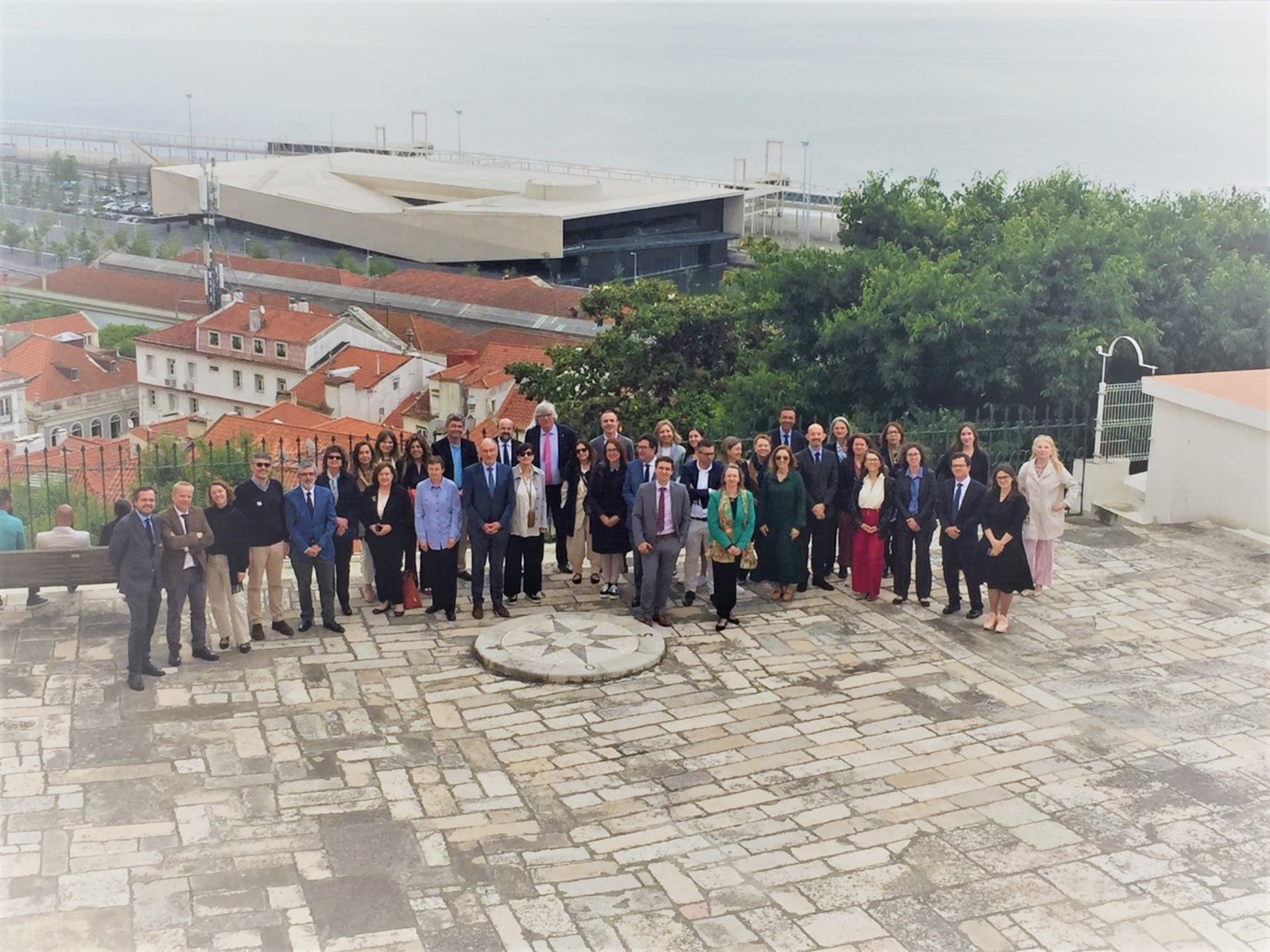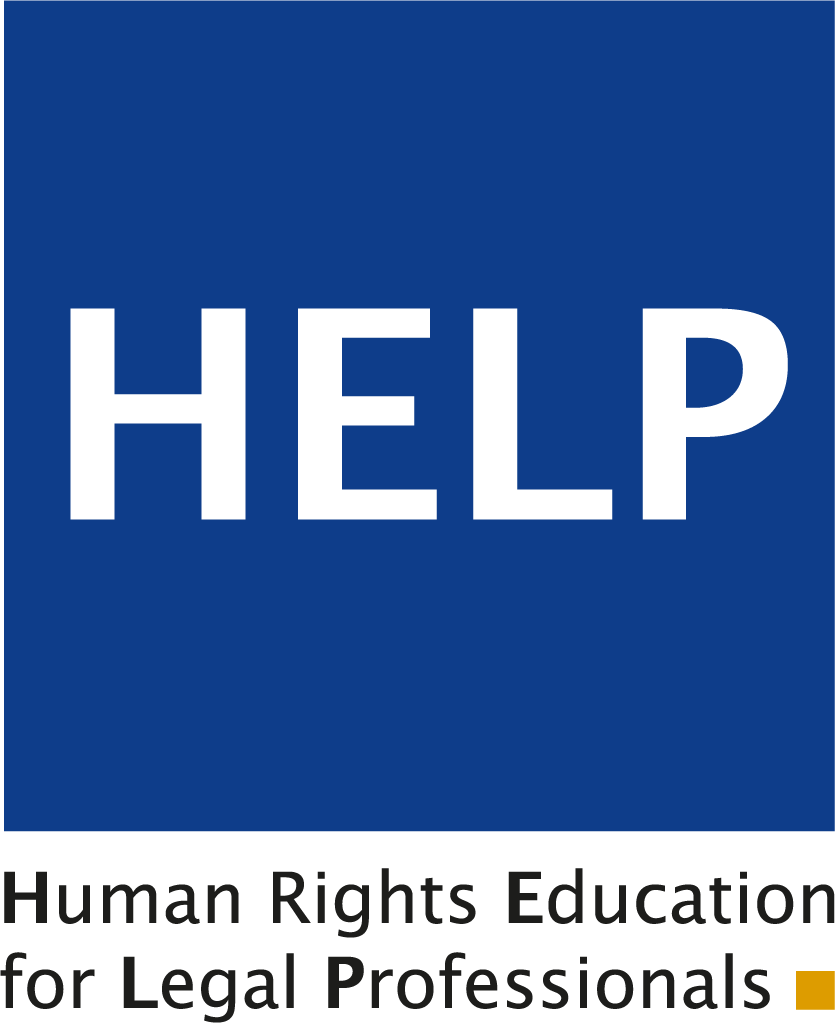On 17 May 2024 over sixty judges, prosecutors and lawyers from Portugal and Spain attended the launch of the Council of Europe HELP course on Introduction to Human Rights Protection in Europe – the Interplay between the ECHR and the EU Charter of Fundamental Rights.
The event was held in Lisbon, at the Centre for Judicial Studies from Portugal. It was organised by the Council of Europe, in collaboration with the Centre for Judicial Studies from Portugal and the Judicial School from Spain, in the framework of the EU-CoE Project “HELP in the EU III” (funded under the European Union’s Justice Programme (2021-2027)).
The launch began with introductory remarks from Valter Btista, HELP Focal Point for Portugal, and Rocío Ortega Atienza, HELP Focal Point for Spain. They both welcomed the participants and talked about the successful collaboration with HELP, which they praised for its flexibility, that allows for courses to be adapted to different languages, different professions and different national contexts. They also talked about the importance of the launched HELP course, emphasizing that both knowledge about the European Convention on Human Rights (ECHR) and of the EU Charter for Fundamental Rights and their interplay is vital for practitioners; the course can be used to answer the dilemmas practitioners might face when applying fundamental rights at the national level, across different fields of law.
Both the Centre for Judicial Studies from Portugal and the Judicial School from Spain are indeed some of the most active actors of the HELP Network, organising course launches together with the Council of Europe often, but also using many of the Council of Europe’s HELP courses on their own platforms and in their own training plans.
Several interventions relevant for the topic of the course followed. Johan Callewaert, Deputy Grand Chamber Registrar at the European Court of Human Rights, talked about the interplay between the ECHR and EU law. He argued that these legal instruments are sources of mutual inspiration for the Strasbourg and the Luxembourg courts and that the ECHR sets a minimum level of protection, with an always evolving case law. He also shared some advice for judges and prosecutors working at the national level, addressing topics such as procedural rights in criminal proceedings, freedom of religion and the European Arrest Warrant.
Sven Kaufmann, Référendaire at the Court of Justice of the European Union (CJEU), complemented Joan Callewaert’s presentation with information about the functioning of the CJEU and his views on the interplay with Council of Europe instruments. He talked about differences between the functioning of the two systems, emphasising that the EU Charter only applies in the fields of application of EU law. Both representative of the two courts expressed trust in a continuous judicial dialogue between Strasbourg and Luxembourg.
In addition, Rafael Bustos Gisbert, Professor at the Complutense University of Madrid and member of the Council of Europe Venice Commission, talked about the difficulties of practitioners at the national level to apply, in his words, three charters of fundamental rights: the one existing at the level of the Council of Europe, at the level of the EU and at the national level. He emphasized how important legal professionals at the national level are for the correct application of fundamental rights, calling them the ones on the frontline, particularly given that for these rights there is no time for mistakes and delays. He detailed on the steps that he thinks every practitioner needs to take when human rights issues arise, describing the interplay between the three applicable systems as a dance, where each party might feel the need to be in control, but harmony is possible.
During the launch event, the participants also got acquainted with the HELP programme and its e-learning platform, which offers over 50 courses on human rights topics. Furthermore, the two groups met their HELP tutors, judges Fátima Baptista, Maria Emília Melo e Castro and Sílvia Saraiva for the group from Portugal and Miguel Pérez-Moneo, Professor and Trainer for the Spanish Judicial School for the group from Spain. They talked to the participants about their background and interests and presented some insights into the matters to be approached during the course.
The tutors will provide the participants with support and guidance during the following weeks. During the launch event, all participants have been registered on the dedicated course page and are now ready to start the tutored course. HELP certificates, issued by the Council of Europe, the Centre for Judicial Studies from Portugal and the Judicial School from Spain, will be afforded to those who successfully complete the course.
******************************************
The HELP course on Introduction to Human Rights Protection in Europe – the Interplay between the ECHR and the EU Charter of Fundamental Rights emphasizes that EU legal and justice professionals involved in protecting human rights need to understand the European setting in terms of standards and applicability of the two main systems in place, namely under the Council of Europe, with the European Convention on Human Rights and the European Social Charter, and under the European Union, with the EU Charter of Fundamental Rights and the relevant EU law.
The two European systems and their mechanisms have substantially evolved towards convergence and interplay and the two European Courts – the European Court of Human Rights (ECtHR) and the Court of Justice of the EU (CJEU) - are actively engaged in a judicial dialogue and draw inspiration from each other. Moreover, the future accession of the EU to the ECHR (currently under negotiation) will come as an accomplishment to the efforts carried over the years to ensuring a thorough and effective human rights protection system in Europe.
The course is primarily addressed at legal/justice professionals (judges, prosecutors, lawyers, court staff), but could also be extremely beneficial to bailiffs, notaries, mediators, legal interpreters and translators, court experts etc. It can also be useful for the training of policymakers, national human rights institutions, as well as civil society organisations, university students, EU/CoE staff or anybody interested on the topic.
This HELP course was developed in 2023 under the EU-CoE HELP in the EU III Project (funded under the European Union’s Justice Programme (2021-2027)). The topics are explored in a practical way by using presentations, interactive screens, knowledge tests and reflective exercises, enabling the users to apply the gained knowledge and skills.
The course is available in self-learning format, which has a duration of 6 hours. While for now it can only be followed in English, translation in several other EU languages is in progress. Upon completion, users can generate their electronic Statements of Accomplishment, in proof of their acquired knowledge and skills.
HELP courses are intended, in the long term, to become an integral part of the overall learning curricula of the national training institutions and/or other competent authorities of the CoE member states and beyond.





